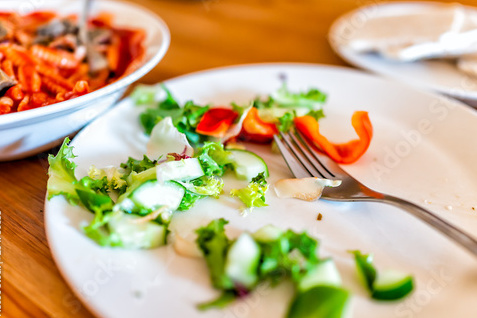
Two Glasgow based restaurants (45 staff members) were producing around 26 tonnes of food waste a year. It was found that about 70 % of that came from plate waste returned from their customers (rice was the most common plate waste, followed by salad, naan bread, and curry sauce). Following workshops on resource efficiency measures were put forward. The first measure introduced an optimised portion control, which was supported by customers and incurred no upfront costs. Reducing plate waste by 20 % saved around € 6 300 a year. The second measure was an optimised stock management and tracking system for purchasing raw ingredients. This required a one-off investment of € 4 650, which in return saved around € 22 000 per year. An additional measure introduced was the life extension of cooking oil by 50 % with the use of a filtration fryer, which cost around € 4 000. This measure led to annual savings of € 1 800 ensuring a fast return on investment. As a result, the key benefits included: optimised stock management and smaller food portion leading to food waste reduction by 22 tonnes; C02 emissions cut by 42 tonnes; annual savings of € 30 000;